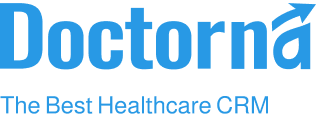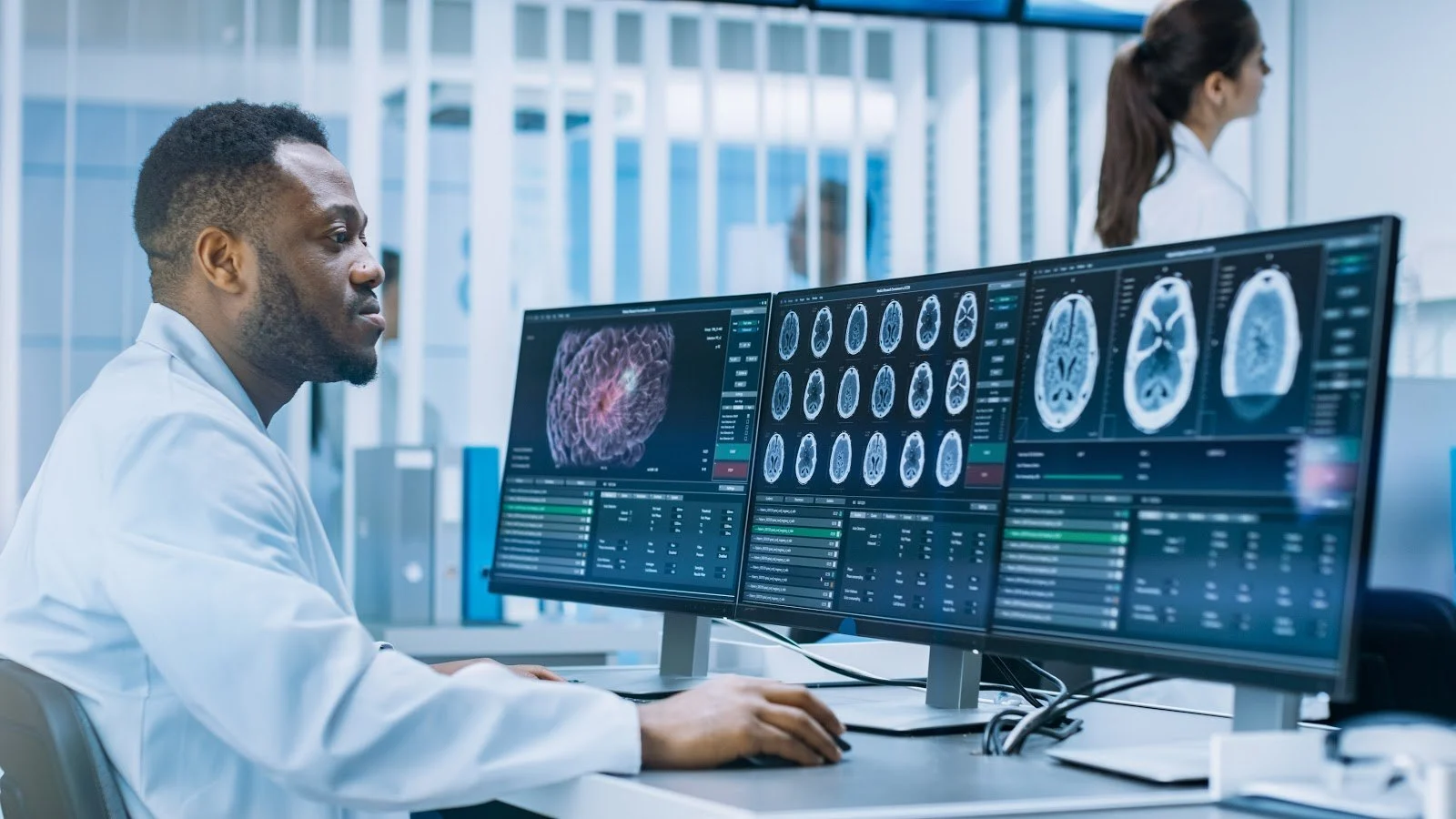A. Understanding the Basics
CRM [Customer Relationship Management] systems are software tools designed to assist businesses manage and analyze interactions with their customers. In the context of healthcare, CRM systems enhance patient management by organizing data, improving communication, and automating administrative tasks.
Healthcare CRM in Dubai have become an indispensable tool for hospitals and clinics alike allowing healthcare professionals to organize and automate essential tasks to improve patient retention and satisfaction.
B. Key Features of Healthcare CRM Solutions
To truly appreciate the value of healthcare CRM systems, we must understand its key characteristics that distinguish them from the traditional patient management systems.
- Patient Data Management: CRM systems provide a centralized storage of patient records, including medical history, appointments, and communication logs.
This comprehensive view of patients allows the healthcare professionals to make personalized strategies. Additionally, the ability to update patient profile in real-time ensures that healthcare workers have access to the most current information, which is essential when it comes to providing care. - Communication Tool: Effective communication is a cornerstone in patient relationship management. CRM systems are equipped with a wide variety of communication tools, including SMS, email, and telephony integration, all of which facilitates seamless interaction.
These tools offer timely updates regarding appointments, test results, and other essential health reminders. Moreover, the feature of tracking communication ensures the healthcare worker offer personalized plan. - Appointment Scheduling: Healthcare CRM system simplifies the process of booking and managing appointments. Through optimized scheduling, hospitals and clinics can successfully reduce no-show rates and efficiently utilize their resources.
- Analytics and Reporting: Accurate analytics and reports generated through CRM empower medical professionals with useful insights on operations and patient outcomes.
By evaluating these KPIs [key performance indicators], organizations can understand their strengths and identify opportunities for improvement. This data-driven approach is essential to remain ahead and competitive. - Integration with Other Systems: CRM systems can be seamlessly integrated with other electronic solutions, including Electronic Health Records [EHR], and others. This integration ensures the patient information is updated and unified across the system, thus boosting the efficiency of care delivery.
C. Benefits of Implementing CRM Systems
The benefits healthcare CRM solutions go beyond patient satisfaction. Let’s look at some of its other advantages.
- Operational Efficiency: CRM solutions streamline workflows and lighten administrative burden through automated tasks, reduced no-shows, and centralized data. This allows medical professionals to deliver more on patient care.
- Better Data Management: CRM systems allow healthcare professionals to seamlessly manage large files of patient data. By creating a centralized hub, employees can consolidate records from various department, create holistic view of patient history, and easily share information with other departments.
- Better Decision Making: Healthcare CRM systems provide valuable insights that look into patient behavior and operation performance. Such information can help medical professionals understand their deficiencies and better their strategies.
- Compliance with Data Security and Privacy Regulations: With CRM systems in place, patient data is encrypted during storage and transmission, thus ensuring the healthcare providers abide with stringent data protection regulations like HIPAA and GDPR.
- Increased Patient Retention and Acquisition: A well-implements CRM system can improve patient retention by personalized outreach, targeted marketing, and feedback management.
- Revenue Growth: By streamlining operations, enhancing patient experience, and optimizing marketing efforts, healthcare workers can see a direct impact on their financial performance.
Related Content: A Detailed Guide to Implementing CRM in Healthcare Industry
D. How to Choose the Right CRM Solution for Your Facility
Choosing the best healthcare CRM in Dubai is a crucial decision that can impact organizational efficiency, patient satisfaction, and data compliance. To choose the right CRM solution, you must follow a detailed evaluation process. Here is a breakdown of the steps:
- Understand Your Unique Needs: Before exploring CRM options, it is fundamental to understand your facility’s unique needs. Some important factors to consider includes, size of the establishment, number of users, patient volume, types of services offered, and regulatory compliance [GDPR, HIPAA, Dubai Health Authority].
- Identify the Mandatory Features of Healthcare CRM: Once you have outlined the facility’s needs, you must understand the key features a CRM system should include. These features are patient data management, appointment scheduling and reminders, integrations with EHR/EMR systems, role-based access control, analytics and reporting, customized workflows, and telemedicine capabilities.
- Evaluate Data Security and Compliance Features: In healthcare, protecting sensitive data is paramount. Therefore, it is essential to double-check the system’s ability for data security and regulatory compliance. A good CRM system will have strong data encryption methods, comply with local and international standards [HIPAA, GDPR, DHA], maintain detailed logs of communication, and offer automated backup and recovery in the event of an emergency.
- Consider Ease of Use and Training Requirements: The success of a CRM system also lies in the hands of the employees. When selecting a CRM solution, choose a system that is user-friendly, has minimal learning curve, and offers training and support.
- Asses Integration Capabilities: Choose a CRM system that can seamlessly integrate with other software solutions in your facility, including EHR/EMR systems, billing and accounting systems, and communication platforms.
- Scalability and Customization: As your facility grows, it is essential your CRM system can grow with it. Choose a system that offers scalable options and customizable features.
- Evaluate Vendor Support and Reliability: The reliability of the vendor is imperative for the long-term success of the CRM system. Select a vendor that has a strong track record in the healthcare industry, offers excellent customer support, and provides training services.
- Budget Considerations: Although cost is not the sole determining factor, it is important to choose a solution that fits into your budget while still meeting your requirements.
- Future-Proof Your Investment: As with all industries, the healthcare sector is also rapidly evolving. Therefore, choose a system that is future-proof and adaptable to emerging trends like AI and machine learning.
E. Wrapping it Up
As you can see, implementing the best healthcare CRM systems is not a luxury, but a necessity in this industry. From streamlining processes to improving patient engagement, a healthcare CRM in Dubai system plays a fundamental role in transforming how we experience and deliver care.
F. FAQs
- What is the fundamental difference between a Healthcare CRM and an Electronic Health Record (EHR) system?
While both manage patient data, a Healthcare CRM primarily focuses on the patient relationship management aspect—improving communication, engagement, marketing, and retention. An EHR system, on the other hand, is designed for the clinical management of patient health information, including medical history, diagnoses, medications, and lab results, primarily for care delivery. They are complementary and often integrated. - How long does it typically take to implement a new Healthcare CRM system in a medical facility in Dubai?
The implementation timeline for a Healthcare CRM varies based on the facility’s size, complexity, data migration needs, and customization requirements. Generally, it can range from a few weeks for smaller clinics to several months for larger hospitals, with effective training and data integration being key factors. - Is cloud-based Healthcare CRM secure enough for sensitive patient data in Dubai, given local regulations?
Yes, reputable cloud-based Healthcare CRM solutions prioritize robust security. They utilize advanced encryption, multi-factor authentication, and adhere to international standards like HIPAA and GDPR, alongside local regulations such as DHA data privacy guidelines. Always verify a vendor’s specific compliance measures and data residency policies for Dubai. - What kind of Return on Investment (ROI) can a healthcare facility expect from investing in a CRM system?
A well-implemented Healthcare CRM can yield significant ROI through various avenues: increased operational efficiency (reduced administrative tasks, fewer no-shows), improved patient retention and acquisition (personalized outreach, better satisfaction), enhanced decision-making from analytics, and ultimately, sustainable revenue growth. - Are there specific training requirements for staff when adopting a new Healthcare CRM in Dubai?
Effective staff training is crucial for successful CRM adoption. While a good CRM system should be user-friendly, facilities should plan for dedicated training sessions for all relevant staff (front-desk, nurses, doctors, administrators) to ensure they can fully leverage the system’s capabilities, maximize its benefits, and maintain data accuracy and compliance.







